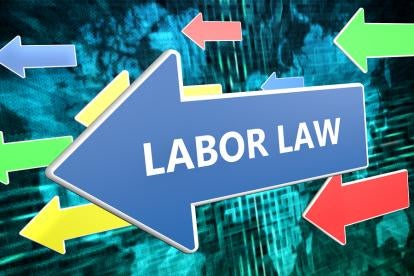As Election Day approaches, employers nationwide consider the changes that may come with a victory by Senator Joseph Biden in the Presidential race and/or shift in representation in the U.S. Senate. While we cannot be certain of what the future holds—either in the election or the subsequent legal landscape—the Bracewell Labor & Employment team has prepared the following information in an effort to highlight areas of employment law that may transform, in both the near and far term, in the event of such changes in the country’s elected officials.
Labor Relations, Collective Bargaining and Union Organizing
-
Senator Biden strongly supports unions, stating that “Everything that defines what it means to live a good life and know you can take care of your family . . . is because of workers who organized unions and fought for worker protections.”
-
Specifically, he supports:
-
Provisions of the Protecting the Right to Organize Act (PRO Act) – which would institute financial penalties on companies that interfere with union organizing – and supports legislation that would hold company executives personally liable for such interference.
-
Funding a “dramatic increase” in the number of investigators at the National Labor Relations Board (NLRB).
-
Shorter timelines for union election campaigns and bans on mandatory employer meetings with employees during union organizing campaign.
-
Creating a federal right to union organizing and collective bargaining for all public sector employees.
-
Creating a cabinet-level working group that will “solely focus on promoting union organizing and collective bargaining.”
-
Extending the right to organize and bargain collectively to independent contractors.
-
-
While recent prior Democrat administrations were not able to strengthen organized labor in the way Senator Biden’s platform hopes to achieve, at a minimum, if Senator Biden were to become President, his appointments to the NLRB would return a pro labor union majority to the agency. In that case, the NRLB decisions and rule making would strengthen union organizing and limits on workplace rules.
Workplace Rules
-
President Donald Trump shifted the limits of employer workplace policies by undoing pro-union rulings the NLRB made under former President Barack Obama. A Biden Presidency would likely swing such rulings back to where they were in the Obama era.
-
Employees should look for potential changes in the following areas:
-
Facially neutral workplace rules: The Trump NLRB, in its Boeing Company decision, ruled that an employer does not necessarily violate the NLRA by maintaining a facially neutral work rule, policy or handbook provision that could be reasonably construed to interfere with union or other protected concerted activity protected under Section 7. This overruled Lutheran Heritage Village-Livonia, which under the Obama administration, was frequently applied to invalidate facially neutral employer rules adopted and applied for legitimate business reasons unrelated to an employee’s Section 7 activity. Examples of Section 7 activity include the right discuss wages and working conditions and the right to organize.
-
Workplace investigations: In its 2015 Banner Health decision, the NLRB prohibited employers from requiring employees to keep workplace investigations confidential. Last December, the Trump NLRB, in Apogee Retail, reversed the Banner Health decision, finding that employer policies that require confidentiality during internal investigations are per se lawful.
-
Employer e-mail: As a result of the NLRB’s 2014 Purple Communications decision, employers could not prohibit employees from accessing company email for union-related communications. The Trump NLRB, in its Caesar’s Entertainment decision, restored employer rights to prohibit use of its email systems for non-business purposes.
-
Employment Law Developments and Enforcement
Senator Biden supports the following legislation:
-
The Equality Act
-
A proposed law that would codify anti-discrimination protections for LGBTQ individuals in employment as well as other contexts, including housing.
-
Ensure protection from associational discrimination – discrimination on the basis of a person’s association with an individual in a protected class.
-
The Equality Act passed the House of Representatives but has not come to a vote in the Senate.
-
-
Paycheck Fairness Act
-
A proposed law that addresses wage discrimination on the basis of sex.
-
Amends equal pay provisions of the Fair Labor Standards Act to restrict use of the bona fide factor defense to wage discrimination claims, enhance non-retaliation provisions, make it unlawful to require an employee to sign a contract or waiver prohibiting the employee from disclosing information about the employee’s wages and increase civil penalties for violations of equal pay provisions.
-
Prohibits employers from screening job applicants based on their salary history or requiring salary history during the interview or hiring process.
-
Requires EEOC to issue regulations for collecting compensation and other employment data from employers according to the sex, race, and ethnic identity of employees for use in enforcing laws prohibiting pay discrimination.
-
The Paycheck Fairness Act passed the House of Representatives but has not come to a vote in the Senate.
-
Department of Labor: Independent Contractors, Wage Changes and Federal Contractors
-
As stated above, Senator Biden supports the PRO Act:
-
Increasing the standard to classify workers as independent contractors
-
Expanding the definition of “joint employer”
-
Criminal liability for employer interference with organizing efforts
-
-
DOL, Wage & Hour/FLSA: Recent Rules & Potential Changes
-
(Existing) Final Rule increasing the salary threshold to $684/week
-
If the minimum wage is increased to $15/hr, then the salary threshold would likely increase to retain a sufficient gap between exempt and non-exempt employees under the FLSA ($15/hr = $600/wk)
-
-
(Existing) Final Rule expanded Section 7(i) overtime exemption for retail and service industries by withdrawing the dated list of businesses with “no retail concept.”
-
Likely not affected
-
-
(Existing) Final Rule allows bonuses or other incentives to salaried, nonexempt employees without defeating the fluctuating workweek” method described in 29 CFR 778.114.
-
Likely not affected
-
-
(Existing) Final Rule on joint employer describing “vertical” and “horizontal” joint employer scenarios (enjoined by federal district court) to the extent the DOL too narrowly defined joint employment)
-
This may be challenged.
-
-
Proposed rule adopting the “economic realities” test for independent contractors and emphasizing the factors of control and opportunity for profit and loss.
-
This may be challenged.
-
-
-
Senator Biden’s general proposals:
-
Increased penalties (in addition to current FLSA remedies and liquidated damages) for worker misclassification.
-
Senator Biden proposes to increase DOL/FLSA enforcement effort.
-
Senator Biden proposes to increase staffing of agencies.
-
Senator Biden proposes greater collaborative enforcement efforts between various labor agencies (NLRB, EEOC, IRS, State unemployment and labor agencies).
-
-
Executive Orders & the Office of Federal Contract Compliance Programs (OFCCP)
-
Executive Order 13950, “Combating Race and Sex Stereotyping” prohibiting federal contractors from instilling race or sex stereotyping or scapegoating in workplace diversity and inclusion training
-
Likely withdrawn by Senator Biden administration
-
-
-
Notably, the OFCCP under the Trump Administration collected greater enforcement fines than expected - e.g., OFCCP collected more than $21 Million from Dell Technologies, Goldman Sachs and Bank of America primarily relating to gender/race wage disparity claims.
COVID Response – Economic and Public Health Policies Affecting Employers
-
From “Unemployment” to “Employment Insurance”:
-
Focus on maintaining employment at reduced hours, with federal government supplementing worker wages
-
100% federal financing for short-time compensation plan that is “automatically extended based on economic and health conditions” (without the vote of Congress)
-
Tax credit for employer’s extra health care costs
-
-
COVID:
-
Create Pandemic Testing Board to “guarantee regular, reliable and free access to testing for all, including every worker called back to the job”
-
Hire 100,000 Americans to conduct contact tracing
-
Ensure emergency paid leave for all who contract COVID-19 or need to care for a loved one with COVID-19
-
“Ensure worker protection and accountability” including tasking OSHA with “setting and enforcing a rigorous emergency temporary standard”
-
Equip small business with a “restart package” to retain and rehire workers
-
-
Schools – Issuing “basic, objective criteria” at the federal level to guide school reopening and passing significant emergency federal funding for school.
OSHA and Workplace Safety
-
Senator Biden has committed to reinstating a variety workplace safety and health regulations altered during the Trump administration, such as regulations requiring companies to report their workplace injuries.
-
He also has promised to increase the number of investigators in the Occupational Safety and Health Administration (OSHA) and the Mine Safety Health and Administration (MSHA) and to direct OSHA to substantially expand its enforcement efforts.
Employment Agreement Restrictions
-
Senator Biden has promised to will work with Congress to eliminate all non-compete agreements, except the very few that are absolutely necessary to protect a narrowly defined category of trade secrets, and outright ban all no-poaching agreements.







 i
i

